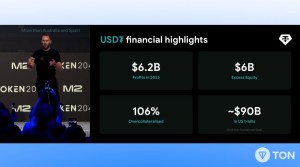In a bold move, Liechtenstein Prime Minister Daniel Risch announced that the government would begin accepting Bitcoin as payment for certain government services. This progressive decision showcases the tiny European nation’s commitment to embracing blockchain technologies.
Liechtenstein’s crypto plans
Risch, who also serves as finance minister, revealed that a payment option with Bitcoin is forthcoming. However, he did not provide a specific timeframe for its implementation.
Interestingly, Liechtenstein will not hold onto the Bitcoin it receives. Instead, it will accept deposits in Bitcoin and immediately exchange them for Swiss francs, the national currency. This approach aims to avoid the cryptocurrency’s volatility.
Liechtenstein, a member of the European Economic Area but not the European Union, is subject to the EU’s Markets in Crypto-Assets (MiCA) regulation. This regulatory clarity could potentially attract more cryptocurrency firms to the region.
A thriving cryptocurrency hub
Liechtenstein’s progressive stance on cryptocurrency and blockchain technologies has made it a thriving hub in Europe, comparable to Gibraltar and the Isle of Man.
The Liechtenstein Blockchain Act, enacted in 2019, provided clear regulation for the crypto industry, leading to the establishment of several crypto-focused businesses in the country.
This move follows in the footsteps of Swiss communities like Zug and Lugano, which accept Bitcoin for certain taxes and public services, and where retailers, including McDonald’s, also accept BTC payments.
Despite its forward-thinking approach to cryptocurrencies, Liechtenstein remains cautious about investing in Bitcoin or other digital currencies. Risch stated that these currencies are currently too risky for the nation’s multibillion-dollar treasury. However, this assessment may change in the future.
A growing trend among small nations
Liechtenstein’s decision to allow Bitcoin payments for certain state services reflects a broader trend of smaller countries embracing cryptocurrencies and blockchain technology.
Prime Minister Risch confirmed in an interview with German business daily Handelsblatt that the nation plans to accept deposits in Bitcoin and immediately exchange them for Swiss francs.
Risch emphasized that there are no plans for significant risks with state money. However, he remains open to the idea of investing state reserves in Bitcoin in the future.
Currently, the state’s reserves are primarily invested in the capital market, amounting to 2.23 billion Swiss francs ($2.51 billion), according to Handelsblatt’s report citing the finance ministry.
Cryptocurrencies like Bitcoin are still considered too risky by Risch, but he acknowledged that this evaluation could change over time. With this announcement, Liechtenstein demonstrates its commitment to integrating cryptocurrency into its financial system, potentially serving as a model for other nations to follow.





